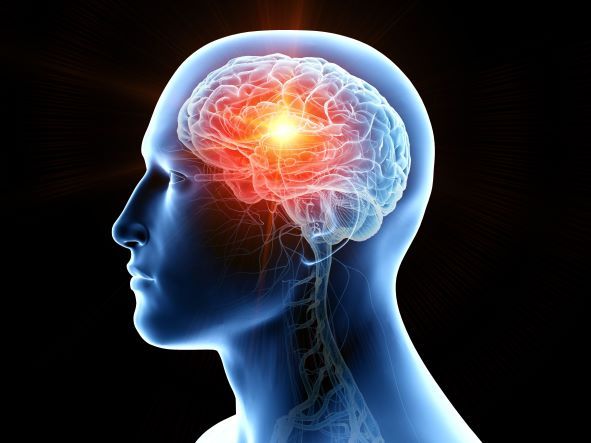

In the ever-evolving landscape of mental health care, a groundbreaking approach is making waves for its unique integration of neuroscience and counseling, known as neurocounseling.
What is Neurocounseling?
Seattle Neurocounseling PLLC
Neurocounseling: Revolutionizing Mental Health Care
In the ever-evolving landscape of mental health care, a groundbreaking approach is making waves for its unique integration of neuroscience and counseling, known as neurocounseling. The Substance Abuse and Mental Health Services Administration (SAMHSA) plays a pivotal role in supporting mental health initiatives, including neurocounseling, by promoting Mental Health Awareness, providing essential resources and information, and hosting symposiums to raise awareness and foster discussions on improving mental health outcomes.
Neurocounseling or neuroscience informed counseling stands at the forefront of this innovation, offering a promising avenue for individuals seeking comprehensive and effective mental health support. This article delves into the essence of neurocounseling in clinical practice, its benefits, and why neurocounseling is becoming an essential component of modern mental health care.
What is the meaning of Neurocounseling?
Neuroscience-informed counseling is a newer branch of mental health therapy that uses traditional approaches combined with brain-based research to implement brain-based counseling interventions, changing the way that the brain functions. Counselors educate clients on how to change their life by making positive changes that effect the neural pathways in their brains. Understanding the source of brain wave dysregulation will help improve mental health. Imaging has shown evidence that neurocounseling causes physical changes in the brain. Thus, neurocounseling can change the way the mind works. Incorporating neuroscience into the counseling process enhances the effectiveness in diagnosing and treating mental illness.
Neurocounseling or neuro-science informed counseling in practice bridges the gap between traditional counseling techniques and the latest findings in neurology and brain science. It operates on the premise that understanding the brain's functioning can significantly enhance the therapeutic process, offering tailored counseling interventions that align with how the brain processes information, emotions, and experiences. Neuro science informed counseling in practice utilizes this insight to create brain-based counseling interventions to address a wide range of mental health issues, from anxiety and depression to trauma, providing a more informed and effective treatment plan.
How were Neurocounseling and brain-based clinical approaches founded?
Neurocounseling was founded in the 21st century with the discovery that behavioral and psychological symptoms have correlating physiological and neurological foundations. In the 90s, it was discovered by the Salk Institute's that the hippocampus continues to produce neurons into adulthood. This concept of Neuroplasticity is the idea that when new thoughts are formed, new neural pathways are formed. Prior to that, the common belief was that the brain was static.
What is Neuroplasticity?
Neuroplasticity, also known as brain plasticity, is a fundamental property of the nervous system that describes the brain's ability to change and adapt as a result of experience. This capacity for change includes both the structural remodeling of connections between neurons and the functional changes that affect how the mind processes information. Neuroplasticity occurs throughout a person's life and is involved in everything from learning new skills to recovery from head injury.
Key Aspects of Neuroplasticity
- Synaptic Plasticity: This is the ability of synapses (the connections between neuron) to strengthen or weaken over time, depending on the frequency of activation. This form of plasticity is considered the cellular basis for learning and memory.
- Cortical Reorganization: The brain can reorganize its functional connections in response to learning, injury, or sensory deprivation. For example, if one part is damaged, other parts may take over its functions, demonstrating a form of adaptive plasticity.
- Neurogenesis: Although once thought impossible, it's now known that the adult brain can generate new neurons, albeit in limited areas. This growth can contribute to neural plasticity, particularly in the hippocampus, an area involved in learning and memory.
Importance of Neuroplasticity
- Learning and Memory: Neuroplasticity is vital for allowing the brain to adapt to new information and store data as memories.
- Recovery from Head Injury: After an injury, the brain can partly rewire itself to compensate for lost functions or maximize remaining functions, which is crucial in rehabilitation settings.
- Adaptation to New Experiences and Environments: Neuroplasticity allows the brain to adjust to new situations and changes in the environment, enhancing the individual's ability to survive and thrive.
Overall, neuroplasticity highlights the brain's remarkable capacity to adapt and evolve, reflecting changes not only from external experiences but also as a result of internal conditions. It's a vital area of study in understanding how to enhance cognitive abilities, treat head injuries, and sleep disorders and address neurodegenerative diseases effectively.
What are Neural Pathways?
Neuropathways, also known as neural pathways or circuits, are the connections through which nerve cells in the brain and nervous system communicate with each other. These pathways are fundamental to how the brain processes information and are involved in everything from simple reflexes to complex cognitive functions like thinking, planning, and remembering. Here's a closer look at the key aspects of neuropathways:
Composition and Function of Neural Pathways
- Neuron: These are the basic building blocks of the nervous system. Each nerve cell consists of a cell body, dendrites (which receive signals), and an axon (which sends signals).
- Synapses: These are the tiny gaps between nerve cells, across which chemical or electrical signals pass. When one nerve cell communicates with another, it releases neurotransmitters into the synapse that are then detected by receptors on the next neuron.
- Neural Circuits: A neural pathway involves multiple nerve cells connected by synapses, forming a circuit that can transmit signals across different parts or between the brain and other areas of the body.
Types of Neural Pathways
- Sensory Pathways: These pathways carry sensory information from the body to the brain. For example, pathways from the eyes or ears carry visual and auditory information to the brain, allowing us to see and hear.
- Motor Pathways: These control movement by transmitting signals from the brain to muscles throughout the body.
- Cognitive Pathways: Involved in the higher functions of the brain such as thought, memory, and decision-making.
Important in Mental Health and Disease
Neural pathways are crucial for the normal functioning of the body own brain and mind. When these pathways are damaged or disrupted, it can lead to various neurological disorders. For example:
- Parkinson’s Disease: Characterized by the degeneration of pathways that transmit dopamine, affecting movement.
- Alzheimer’s Disease: Involves the breakdown of pathways involved in memory and cognition.
- Depression and Anxiety: Associated with dysfunctional pathways in parts of the brain that regulate mood.
Understanding and studying neuropathways is vital for developing treatments for neurological and mental health, as well as for interventions and treatment like counseling or medication that aim to treat people to modify or optimize these pathways for the treatment and better health outcomes.
How does neuroscience informed counseling affect pathways and brain functions?
Here's a breakdown of how neurocounseling can affect these pathways:
- Formation of New Connections: Neurocounseling can encourage the formation of new pathways. As individuals learn new coping strategies and ways of thinking, they create and strengthen new pathways. This process is known as neuroplasticity, which refers to the brain's ability to adapt and change throughout life.
- Changing Existing Pathways: Through consistent therapy, individuals can alter their habitual patterns of thinking. For instance, cognitive-behavioral therapy (CBT) focuses on changing negative thought patterns that contribute to emotional distress. Over time, these changes can modify existing neural circuits associated with those thoughts.
- Reduction in Stress: Chronic stress can impair brain functions and even lead to structural changes in certain areas of the brain, such as the hippocampus. Counseling can help reduce this, which may prevent related changes in the brain and improve overall brain health and function.
- Enhancement of Emotional Regulation: Neuroscience-informed counseling often helps individuals better manage and regulate their emotions. Techniques learned in sessions can help rewire the neural circuits that mediate emotional regulation, particularly in areas of the brain like the prefrontal cortex and amygdala.
- Improvement in Mental Health Conditions: For conditions such as depression and anxiety, post-traumatic stress disorder, ADHD, and Autism Spectrum disorders. Neurocounseling can help alleviate symptoms by modifying the dysfunctional neuropathways that contribute to these disorders. Over time, therapy can contribute to more stable and healthy patterns of brain activity.
Overall, the impact of counseling on neuropathways underlines the capacity of psychotherapy intervention and counseling not only to improve emotional and psychological well-being but also to effect tangible changes in the brain. This underscores the potential of therapeutic interventions and counseling in reshaping brain functions and contributing to long-term mental health recovery.
The Benefits of Neurocounseling: A Holistic Approach to Mental Wellness
The incorporation of neuroscience into the counseling process brings forth several benefits, making neurocounseling a preferred choice for many clients seeking mental health services:
- Personalized Treatment Plans: Neurocounseling provides therapists with a deeper understanding of an individual's unique brain patterns, allowing for customized treatment strategies that are more likely to result in positive outcomes.
- Enhanced Understanding of Mental Health Conditions: This approach demystifies the biological underpinnings of mental health challenges, empowering clients with knowledge about how their brain's wiring can affect their emotions and behavior.
- Integration of Technology: Neurocounseling often employs cutting-edge technology, such as neurofeedback and biofeedback, to monitor brain activity and teach clients how to modulate their own neurological responses for better mental health.
Who can benefit from Neurocounseling?
Neurocounseling or neuroscience-informed counseling offers a broad range of benefits that can be applicable to various groups of individuals. By incorporating neuroscientific insights into traditional counseling practices, neurocounseling can enhance the understanding and treatment of mental health issues. Here are some groups who can particularly benefit from Neuroscience informed counseling:
- Individuals with Mental Health Disorders: People suffering from anxiety, depression, PTSD, bipolar disorder, and other mental health conditions can benefit from neurocounseling. By understanding the brain’s role in these conditions, therapists can tailor interventions that specifically target the neural underpinnings of these disorders.
- Children and Adolescents: Neurocounseling can be especially beneficial for young individuals with developmental issues such as ADHD, ASD, or learning disabilities. It can help in developing strategies that are aligned with the child's developmental stage and brain maturation.
- People with Brain Injuries: Individuals recovering from traumatic brain injuries (TBI) or strokes may find neurocounseling helpful. Therapists can use neuroscientific knowledge to aid in the rehabilitation process, focusing on the areas of the brain that have been affected and employing strategies to enhance brain plasticity and recovery.
- Older Adults: For older adults experiencing cognitive decline or diseases like Alzheimer’s, neurocounseling can offer strategies to slow cognitive deterioration and manage symptoms. This can involve cognitive exercises and lifestyle changes that support brain health.
- People Seeking Personal Development: Individuals interested in improving their cognitive functions, emotional self-regulation, or overall mental wellness can benefit from the integration of neuroscience into counseling. Techniques like neurofeedback can help enhance focus and improve emotional control.
- Patients with Chronic Conditions: Those dealing with chronic pain, sleep disorders, or chronic fatigue syndrome may also gain from neurocounseling. Understanding how the brain processes pain or sleep can lead to more effective management strategies.
- Veterans and First Responders: Individuals in these groups often deal with high levels of stress, trauma, and PTSD. Neurocounseling can provide them with tools to better manage their symptoms and understand the neurological basis of their experiences, which can be empowering and therapeutic.
Neurocounseling bridges the gap between neuroscience and psychological practice, offering a robust framework for understanding and addressing a wide range of behavioral and psychological symptoms and issues. By focusing on the brain’s structure and function, it allows for tailored therapeutic approaches that can significantly enhance the effectiveness of traditional counseling methods.
Neurocounseling in Practice: Techniques and Applications to Improve brain function
Neurocounseling can influence the brain's neuropathways in several profound ways. Neuropathways, also known as neural pathways or circuits, are the connections through which neurons communicate with each other. In clinical practice alone, neurocounseling incorporates a variety of techniques aimed at optimizing brain function as part of the therapeutic learning process itself. Neurcounseling techniques may include cognitive-behavioral strategies informed by neuroscientific understanding, biofeedback, neurofeedback, and even mindfulness meditation practices, all designed to harness the brain's plasticity for emotional and psychological healing.
Why Neurocounseling Matters: Towards a Future of Integrated Mental Health Care
Neurocounseling offers a significant leap towards integrated, holistic mental health care. By combining the insights and knowledge of neuroscience with therapeutic value and the empathetic, client-centered approach of counseling, it offers a comprehensive framework for understanding and treating mental health issues. This neurocounseling approach not only enhances the effectiveness of therapy but also contributes to destigmatizing mental health conditions by highlighting their biological components.
What are the most recent developments in Neurocounseling?
As the practice in this field continues to evolve, several recent developments highlight its growth and the potential for future innovations. Here are some notable recent developments in recent decades in the practice of neurocounseling:
- Brain Imaging and Monitoring: Advances in neuroimaging technologies such as fMRI (functional Magnetic Resonance Imaging) and EEG (Electroencephalography) allow counselors and researchers to observe the brain's activity in real time. This has led to better insights into how different parts of the brain are involved in emotional and cognitive processes, which can be directly applied to therapeutic practices.
- Biofeedback and Neurofeedback: These techniques have become more sophisticated and accessible, providing clients with real-time feedback on their brainwave activity. This allows individuals to consciously influence their neural activity, aiding in the treatment of conditions like ADHD, anxiety, depression, and PTSD. Neurofeedback, in particular, has shown promise in helping individuals regulate brain function that can lead to improved attention, emotional regulation, and reduced symptoms of anxiety and depression.
- Tailored Therapeutic Approaches: Neuroscientific findings have supported the development of more personalized counseling approaches. For instance, understanding the neural underpinnings of disorders like depression or anxiety can guide counselors in choosing specific therapeutic techniques that target those neural circuits more effectively.
- Integration of Cognitive Behavioral Tools: With a better understanding of how thoughts and behaviors affect brain structure and function, there's been an increase in integrating cognitive behavioral tools with neuroscientific insights. This integration helps in modifying pathways more effectively, thereby potentially leading to more sustained therapeutic outcomes.
- Counselor education and Training: There's an increasing emphasis on counselor education and mental health training about neuroscience and its relevance to psychotherapy. This education is becoming part of the curriculum in many training programs, equipping new therapists with a more comprehensive toolkit that combines traditional psychotherapy techniques with neuroscientific knowledge.
- Research on Neuroplasticity: Continued research into neuroplasticity is refining our understanding of how counseling can lead to long-term changes in the brain. This research not only validates certain therapeutic approaches but also opens up new possibilities for developing interventions that can lead to more durable and profound changes in mental health.
These developments are transforming how mental health professionals approach treatment, making therapy more targeted and grounded in an understanding of brain function. As the field grows, the integration of these techniques and knowledge into everyday counseling practice is likely to become more standardized, offering clients more effective and personalized therapeutic interventions.
Embracing Neurocounseling: A Call to Action
For individuals struggling with mental health challenges, therapists looking to enhance their practice, for researchers or anyone interested in the latest innovations in mental health care, brain research and neurocounseling offers an exciting and promising path forward. It encourages a shift from a purely psychological understanding of mental health to a more integrated, neuroscientifically informed perspective. As research in the field of brain training continues to grow, so too does the potential for brain research and neurocounseling to transform lives by providing more effective, personalized, and scientifically grounded mental health support.
In conclusion, neurocounseling is more than just a new trend in mental health care—it's a transformative approach to psychological symptoms that bridges the gap between brain science, neuroscience and psychological well-being. Its rise reflects a broader shift towards more holistic and personalized care, promising a future where mental health treatment is not only more effective but also more empowering for those it seeks to help. As this innovative field continues to evolve, it stands as a beacon of hope and progress in the journey towards optimal mental health for all.
Seattle Neurocounselling






